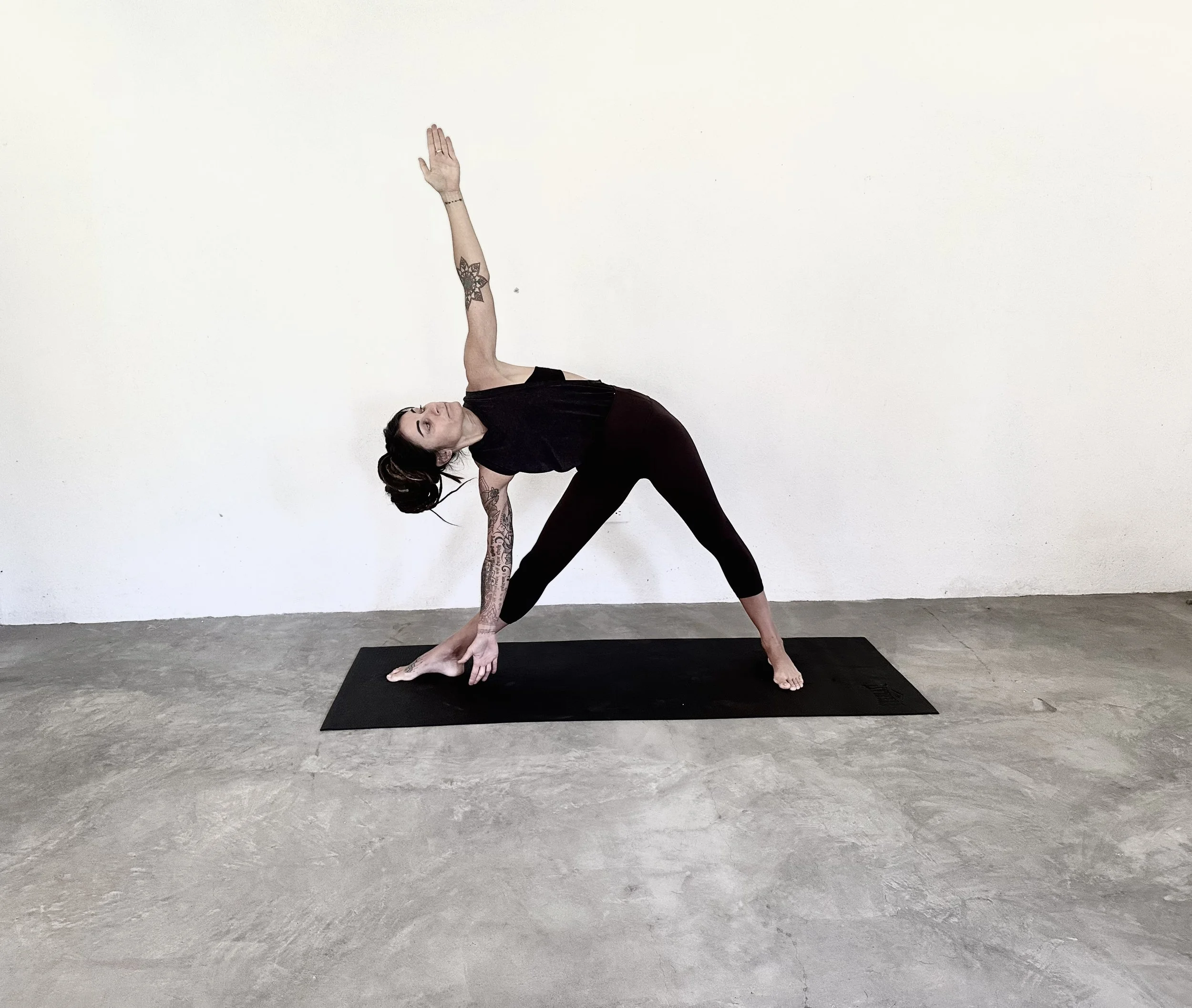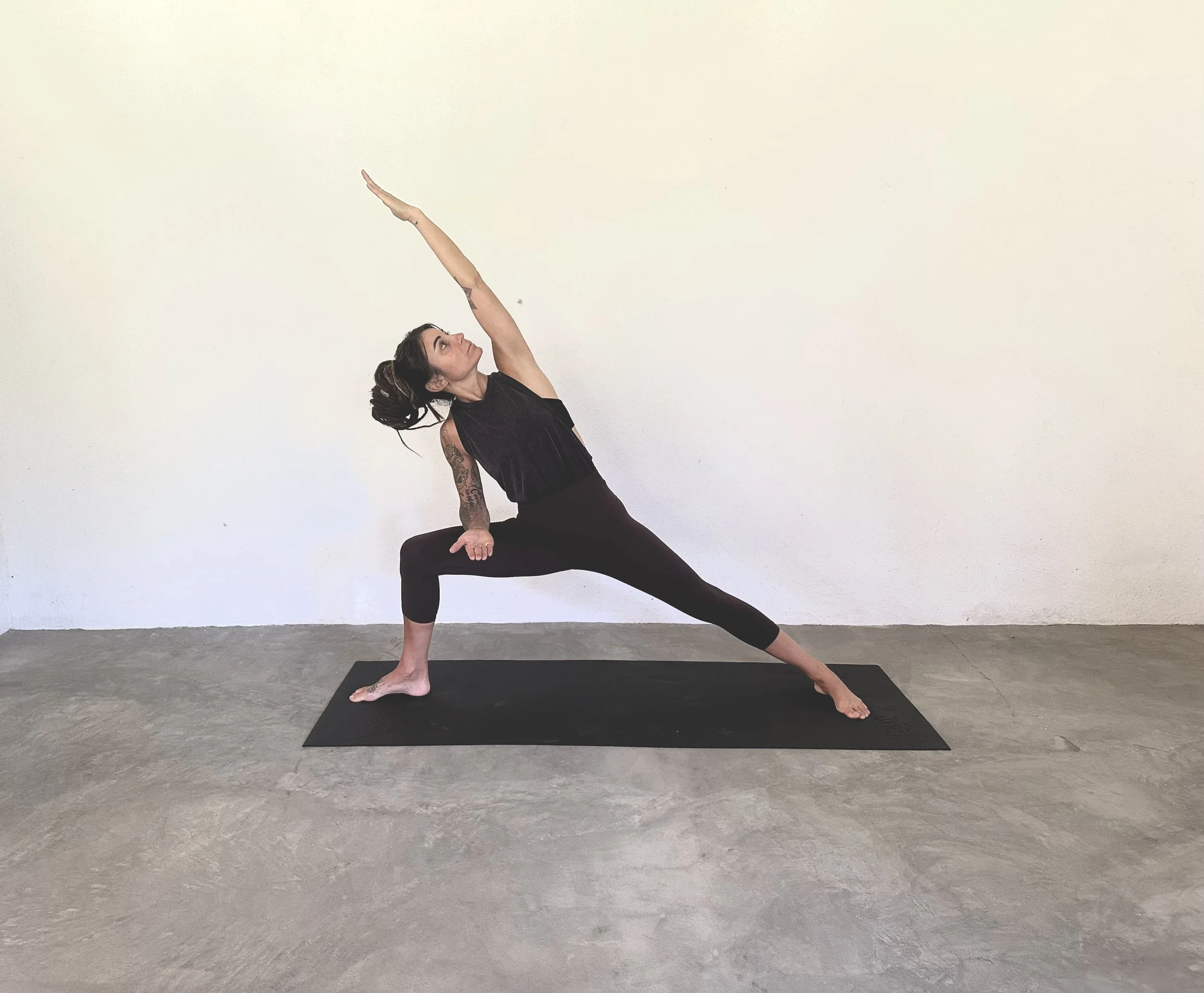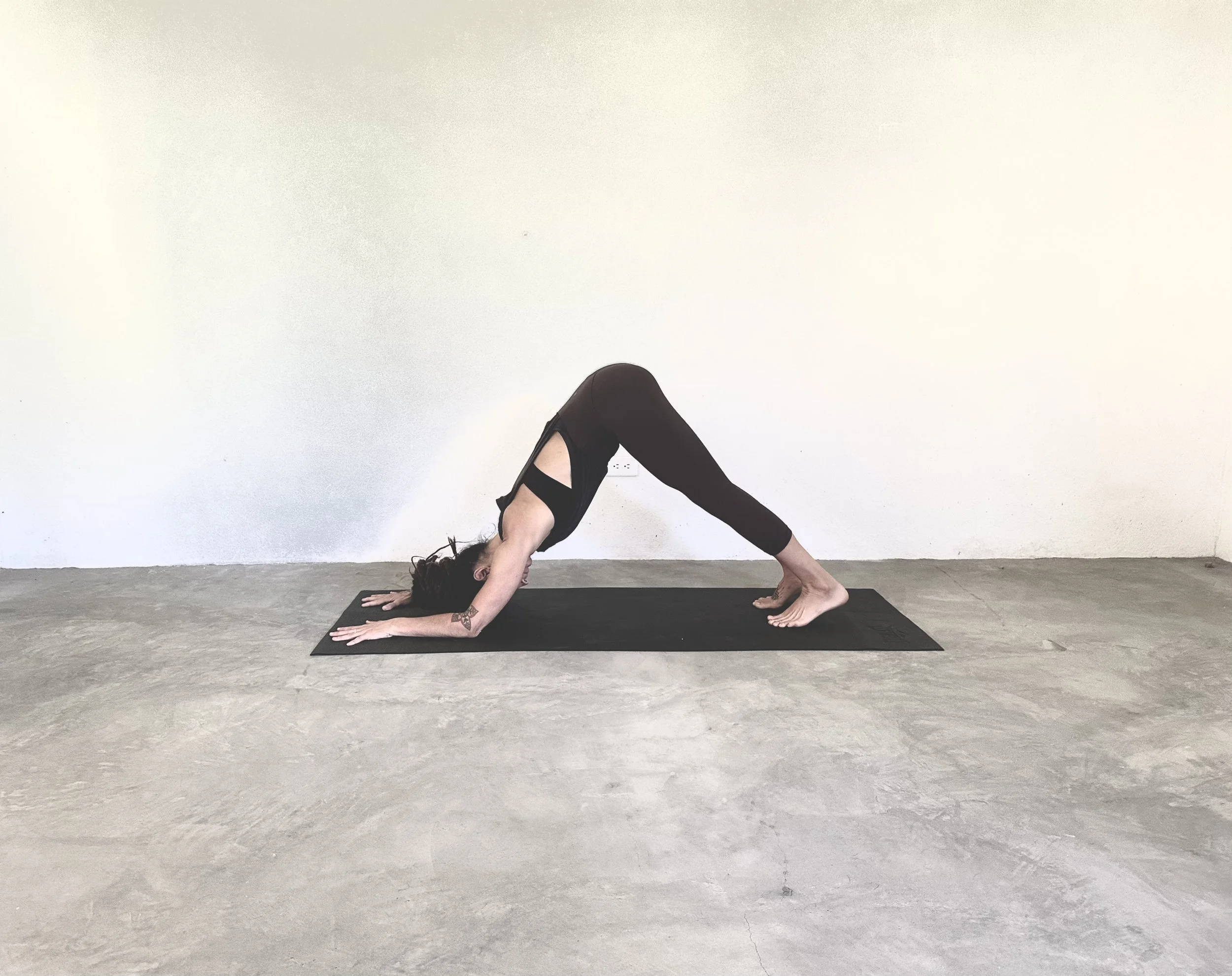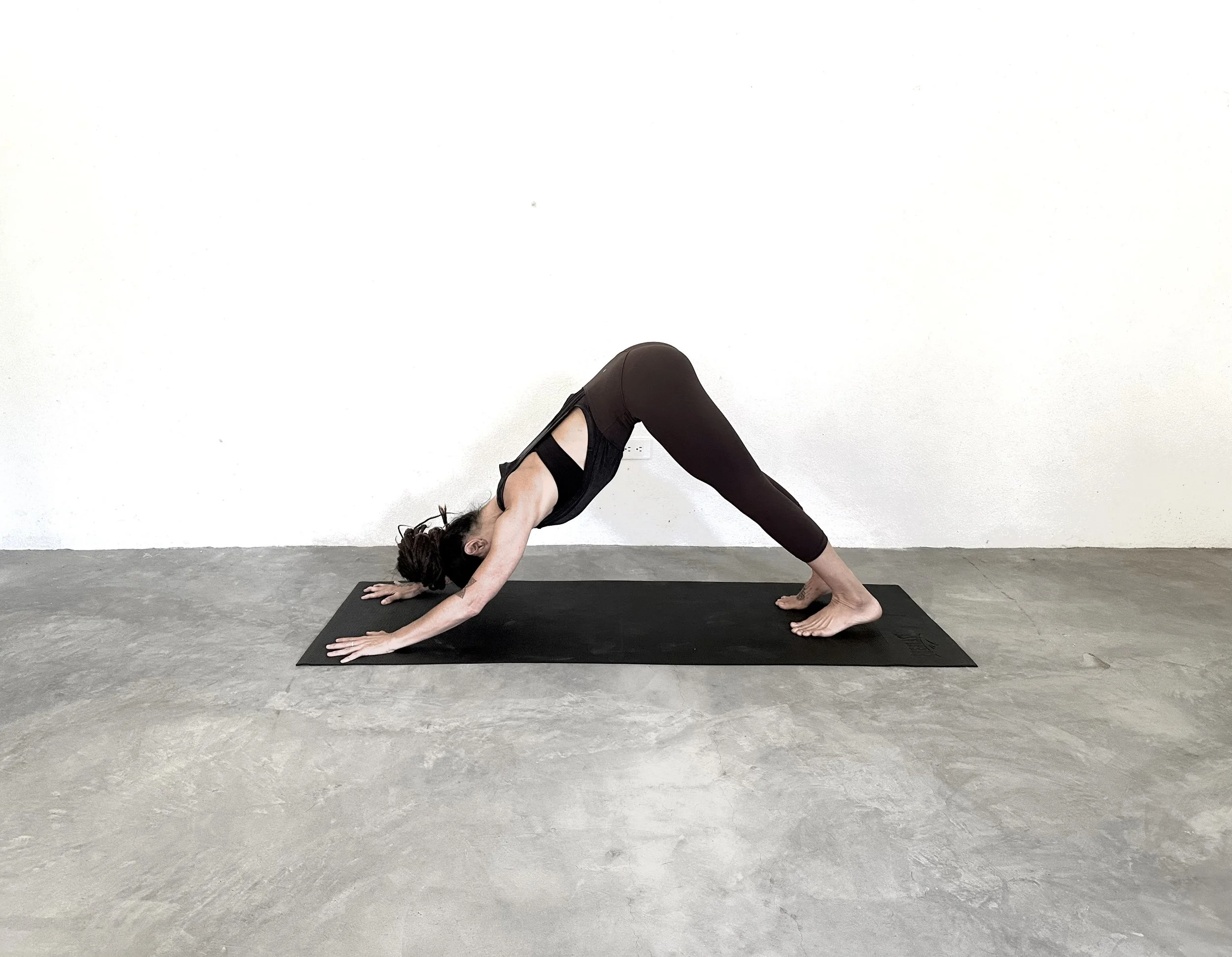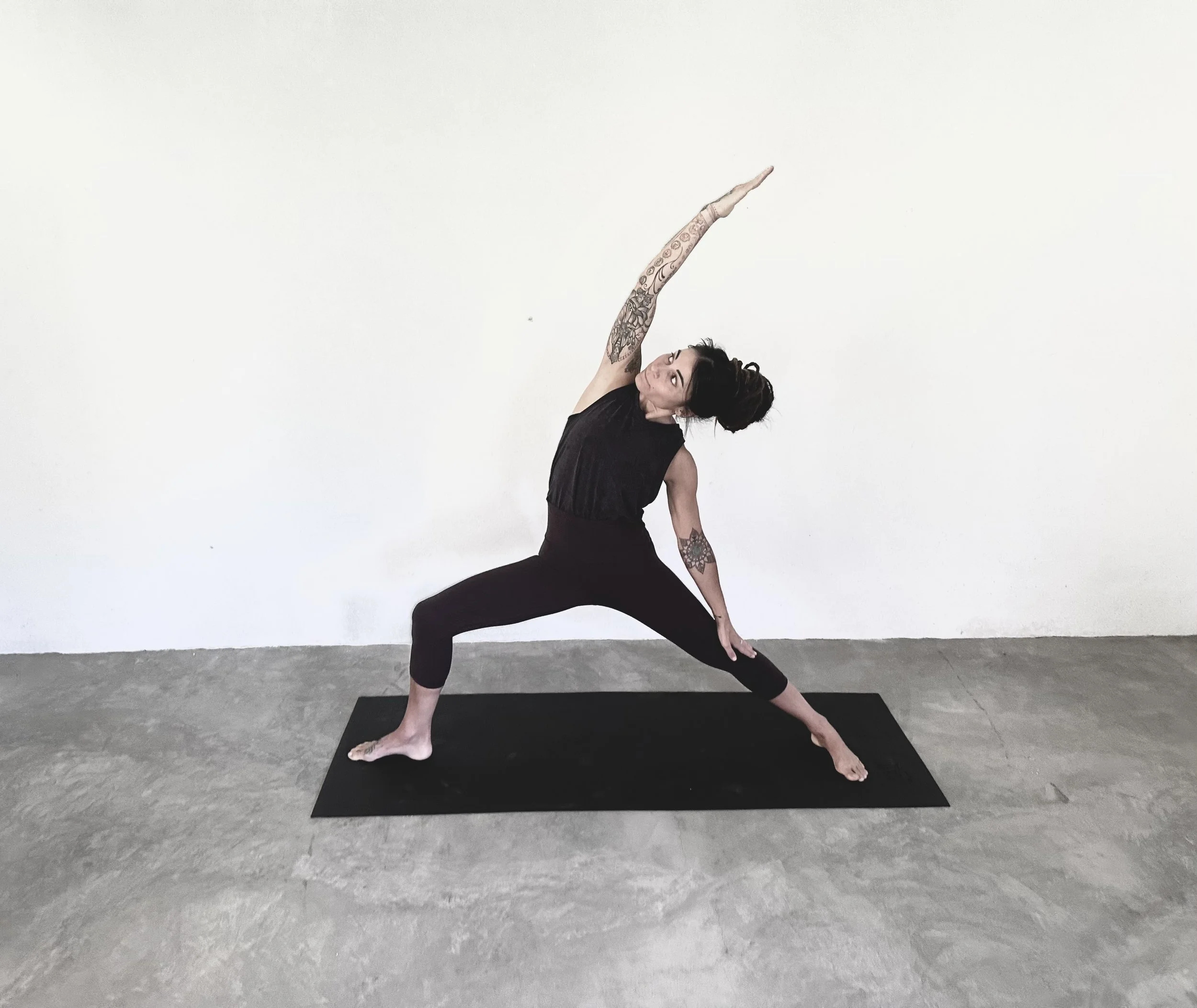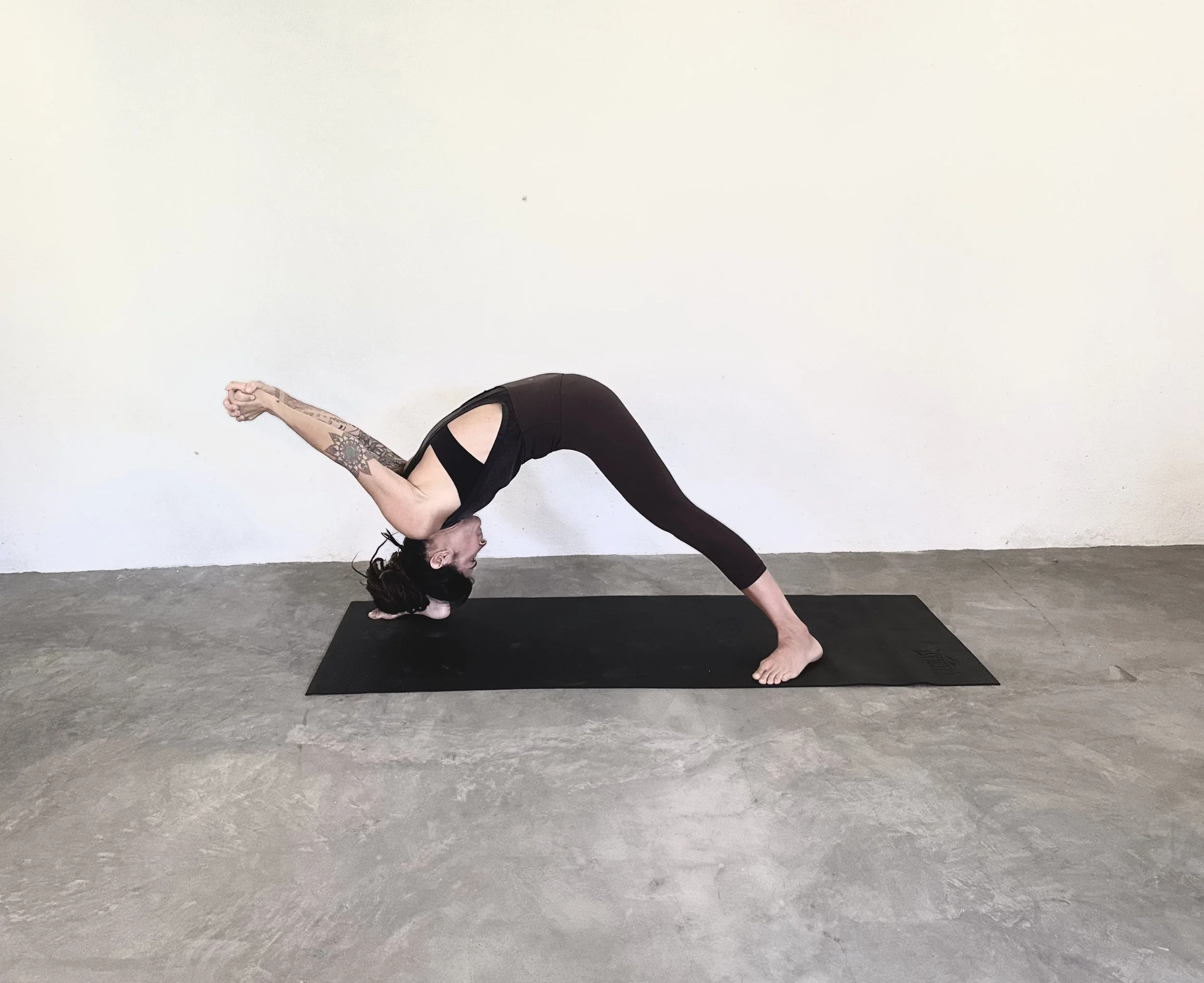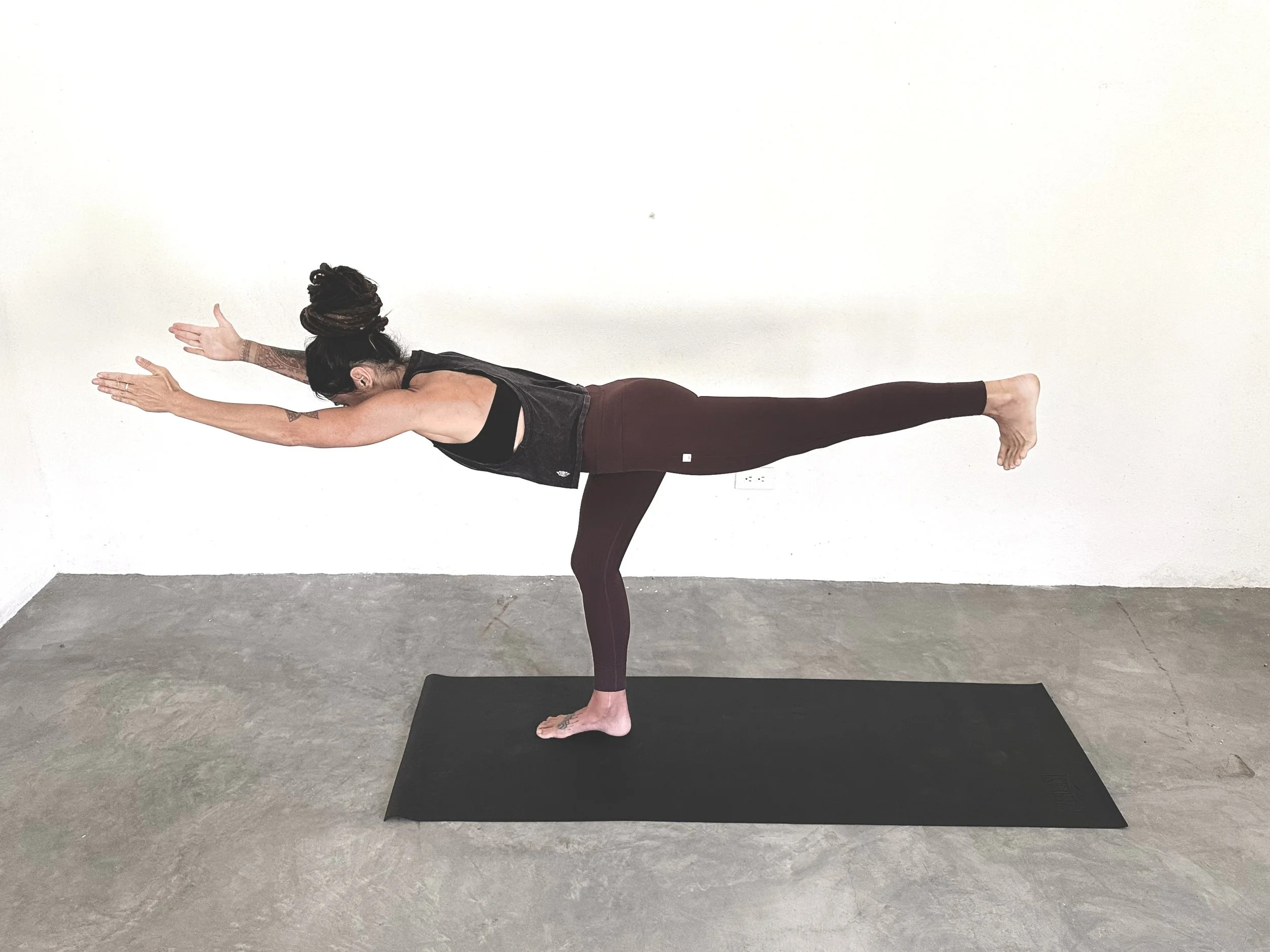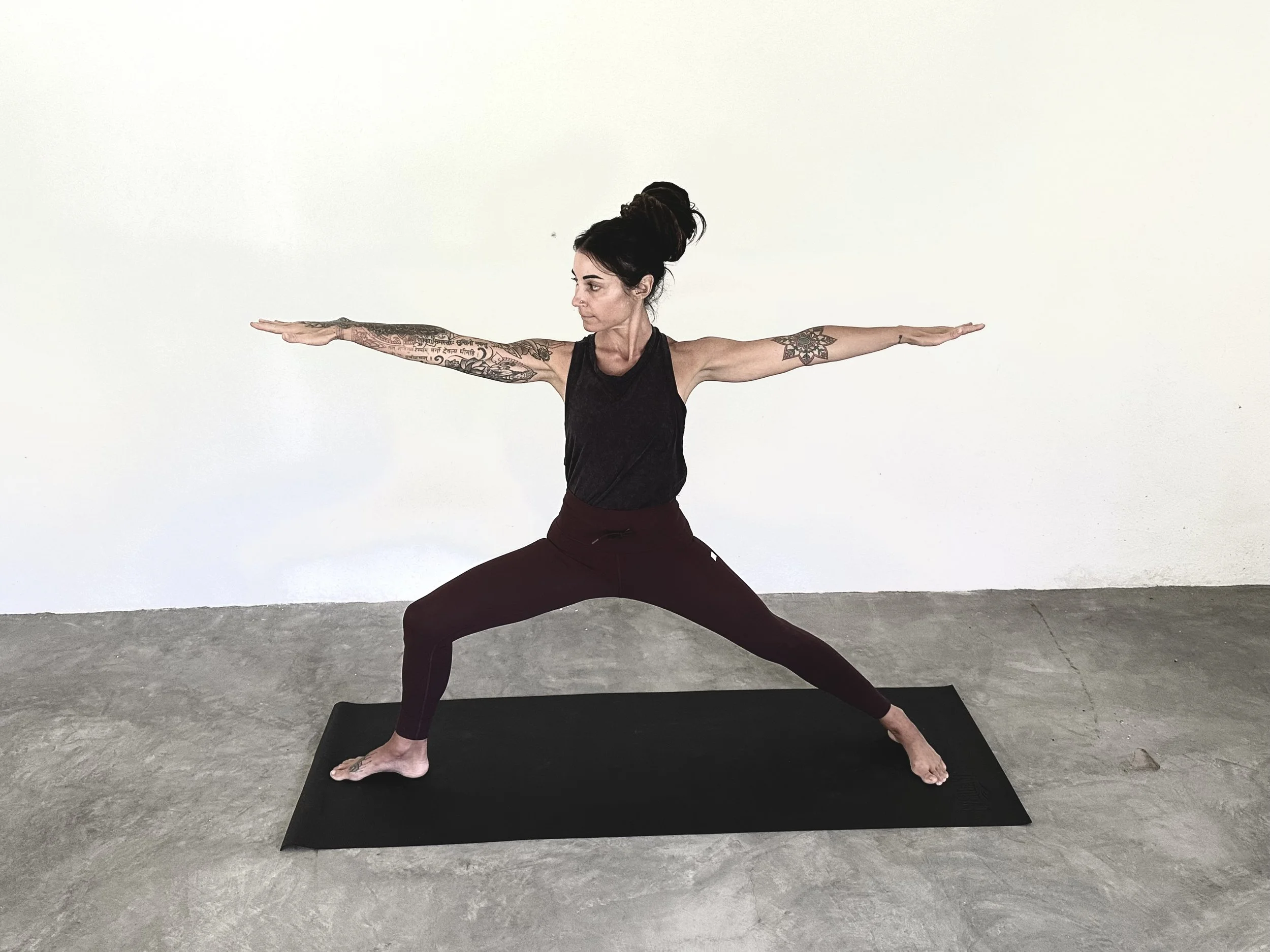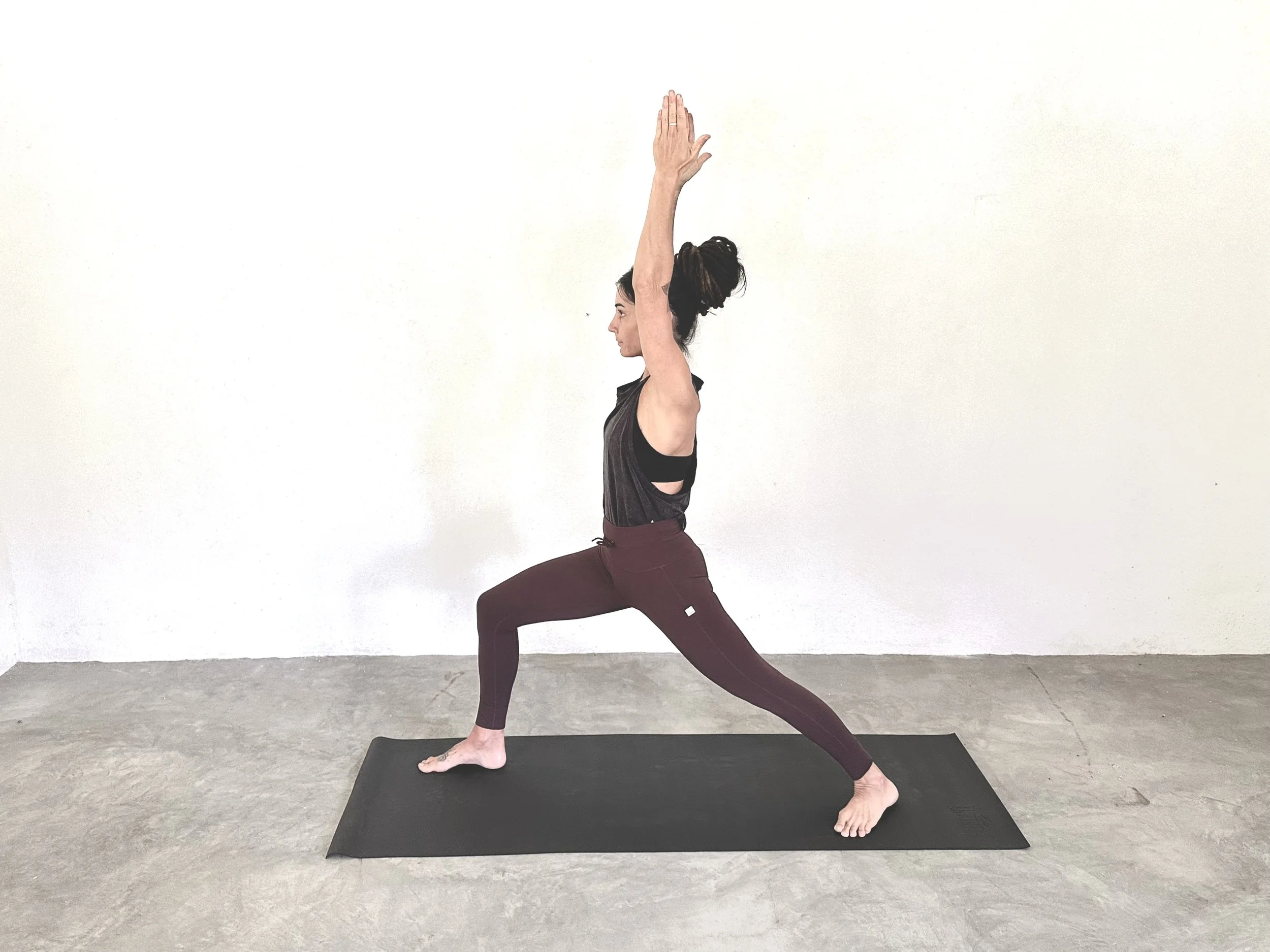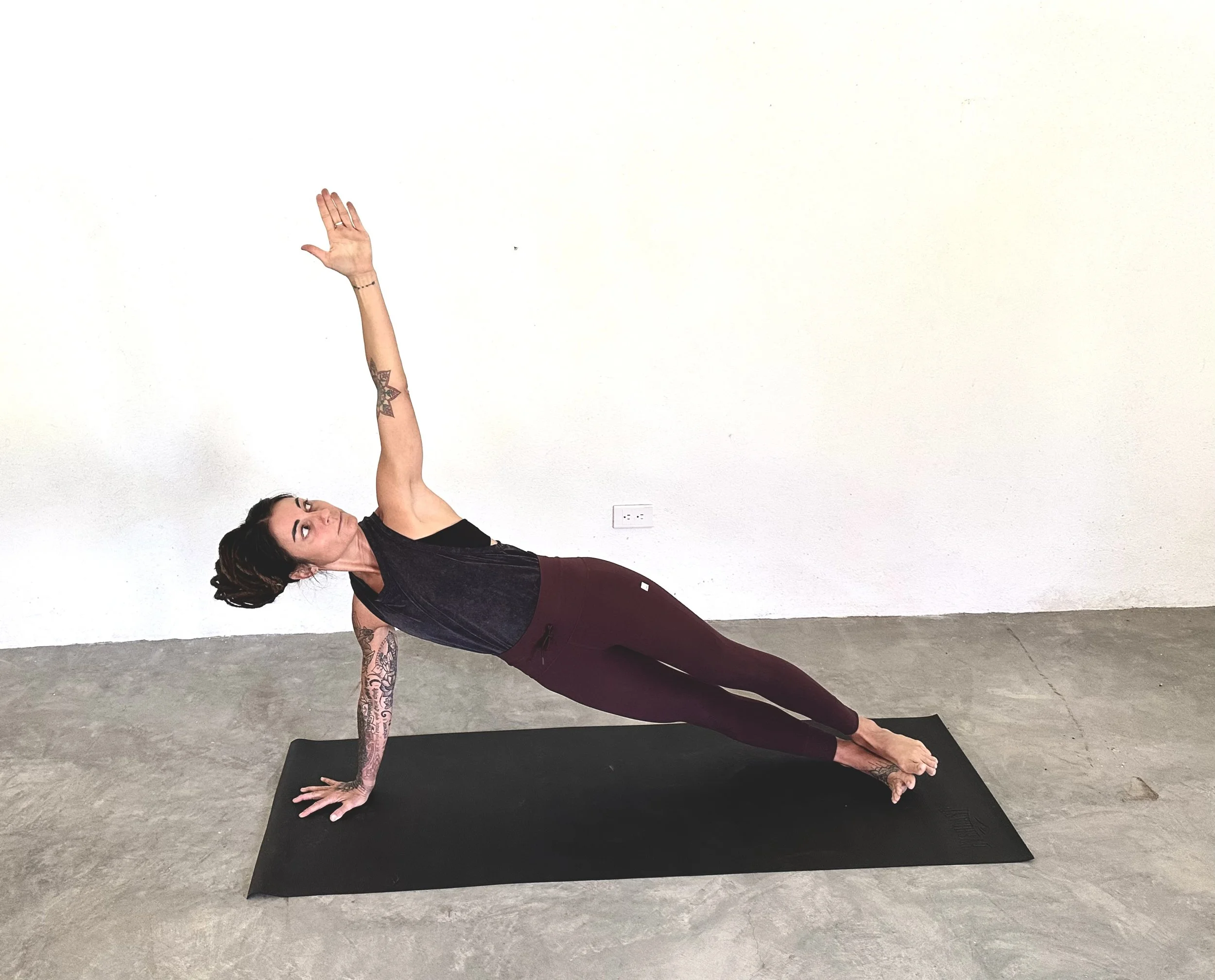The physical WHY behind Trikonasana is a combination of strength, stretch, and balance. The stretch is mostly felt in the backs of the legs, the side body, the spine, the chest, and the groin. The strength of the posture is in the engagement the legs, hips, and core body. The balance is challenged with the upper half of the body extended toward the front leg, requiring stabilization with the lower half of the body and the core body.
Read MoreThe physical WHY behind Utthita Parsvokonasana is a combination of strength, stretch, and balance. The stretch is mostly felt in the side body, the chest, the extended upper arm, and the hips. The strength of the posture is in the engagement the legs, hips, and core body. The balance is challenged with the upper half of the body extended toward the bent front knee, requiring stabilization with the lower half of the body and the core body.
Read MoreThe physical WHY behind Ardha Pincha Mayurasana is a combination of strength and stretch. The stretch is mostly felt in the shoulders and the entire back body including the hamstrings, calves, achilles, arches of the feet, and spine. The strength of the posture is in the engagement the legs, arms, shoulders, core body, hands, and wrists. This posture is an inversion as the heart is above the head and therefore improves circulation and blood flow to the brain.
Read MoreThe physical WHY behind Adho Mukha Svanasana is a combination of strength and stretch. The stretch is mostly felt in the hamstrings, calves, achilles, arches of the feet, spine, and shoulders. The strength of the posture is in the engagement the legs, arms, shoulders, core body, hands, and wrists. This posture is an inversion as the heart is above the head and therefore improves circulation and blood flow to the brain.
Read MoreThe physical WHY behind Viparita Virabhadrasana is a combination of strength, stretch, and balance. The stretch is mostly felt in the side body, the abdominals, the chest, the upper arm reaching over head, as well as parts of the lower body including the psoas, hips and the groin. The strength of the posture is in the engagement of the warrior 2 stance of the legs, in particular the hips, quads, inner thighs, and hamstrings. Balance is required in this posture, the front knee is reaching forward while the upper body is reaching back, the lower body must be strong and steady to allow for the intense side bend of the upper body.
Read MoreThe physical WHY behind Baddha Virabhadrasana is a combination of strength, stretch, and balance. It is an interesting heart opener considering most heart openers do not invite the inward/internal energy that the bow of the posture requires. There is a stretching or lengthening of the arms, shoulders, chest, neck, hips, spine, and the extended back leg. The posture demands considerable strength in the entire lower body to stabilize and allow for the forward fold of the upper body, promoting balance, spatial awareness, and the capacity to engage and relax at the same time.
Read MoreThe physical WHY behind Virabhadrasana III is primarily about strength, balance, and coordination. Warrior 3 strengthens the entire lower body, the core, the shoulders, and the arms. Warrior 3 can also provide stretch for the torso, spine, and shoulders. This posture promotes balance, a strong spine, and one-pointed focus.
Read MoreThe physical WHY behind Virabhadrasana II is a lovely combination of benefit for strength, and stretch. Warrior II strengthens the entire lower body, the core, the shoulders, and the arms. It provides stretch for the hips, the inner thighs, the groin, and the chest. Warrior II also promotes balance, good posture, and one-pointed focus.
Read MoreThe physical WHY behind Virabhadrasana I is a lovely combination of benefit for strength, balance, and stretch. Warrior I strengthens the entire lower body, the spine, the core, the shoulders, and the arms. It provides stretch for the backs of the legs, the hips, as well as the chest. Warrior I also promotes good posture, balance, and a general awareness of the whole body.
Read MoreThe physical WHY behind Vasisthasana is more so about the strength and balance than the stretch (there are ways to add more stretch like lifting a leg a taking a big toe hold for example). Side plank benefits the entire physical body, more specifically the deep spinal stabilizing muscle known as the quadrates lumborum as well as the the shoulders, hips, and obliques. Holding plank pose will increase your stamina and your stability it all other postures.
Read More
